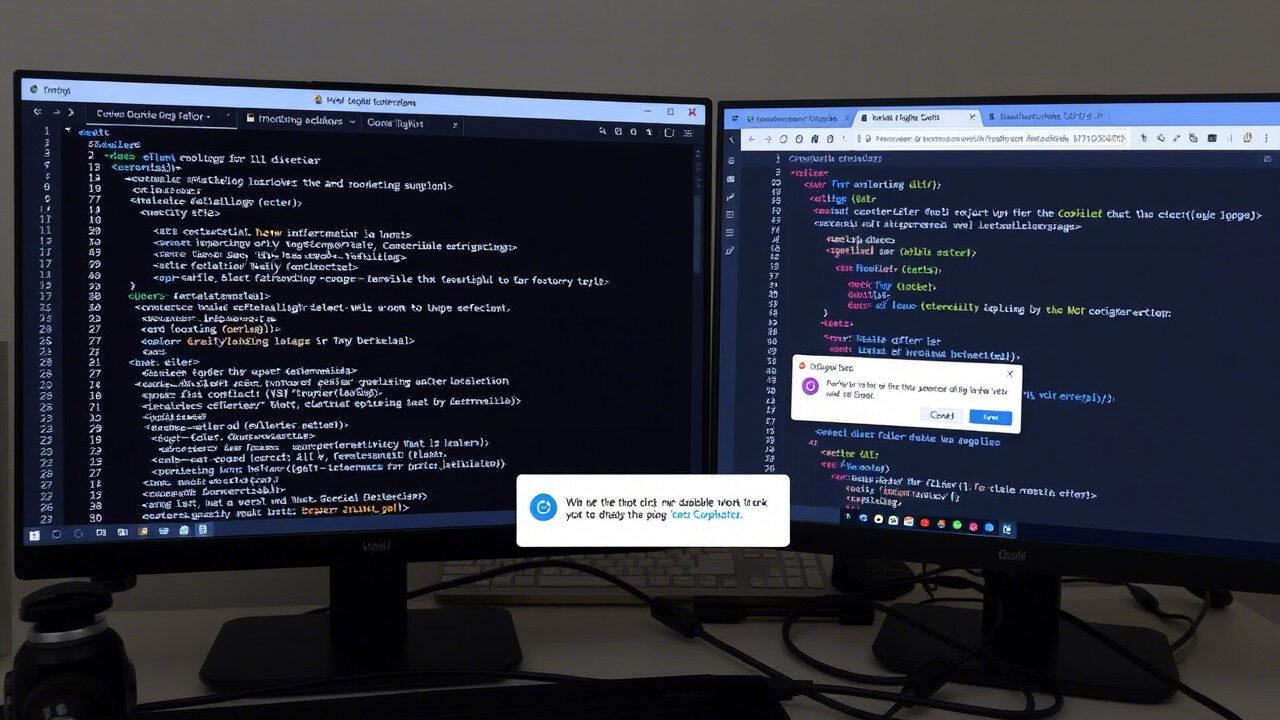Step-by-Step Guide
You finally get GitHub Copilot running—only to find it behaving strangely. Suggestions aren’t showing up. Performance is laggy. Or worse, your editor crashes unexpectedly. The culprit? Often, it’s plugin interference or extension issues.

When Copilot doesn’t play well with other tools, you need a clear strategy for conflict resolution—so your productivity doesn’t take a hit. This step-by-step guide will show you exactly how to fix compatibility problems and get your development environment running smoothly again.
🧩 Why Do Custom Plugins or Extensions Cause Problems with Copilot?
It’s common for developers to customize their IDEs with themes, linters, formatters, and helper tools. But too many moving parts can lead to issues like:
- Conflicting keybindings or autocomplete functions
- Outdated extensions that override Copilot functionality
- Simultaneous autocomplete tools (e.g., Kite, TabNine) causing confusion
- Plugin compatibility gaps after IDE updates
These problems aren’t always obvious—but they often cause Copilot to underperform or malfunction.
⚙️ Step 1: Identify the Source of Interference
Before uninstalling anything, determine whether Copilot’s issues are caused by another plugin.
Here’s how:
- Temporarily disable all third-party extensions in your IDE
- Reactivate only GitHub Copilot and test functionality
- Gradually re-enable your other plugins, one at a time
Watch closely for the plugin that triggers errors, lags, or loss of Copilot suggestions.
🔄 Step 2: Check for Compatibility Updates
Once you identify the conflicting plugin:
- Visit its official documentation or GitHub page
- Look for compatibility notes regarding GitHub Copilot or your IDE version
- Update the extension to its latest version
- Check if the plugin offers settings to avoid autocomplete overlap
Many modern plugins offer configuration options to play nicely with other tools—use them to reduce extension issues.
🔧 Step 3: Adjust Keybindings and Autocomplete Settings
If Copilot and another tool both rely on similar triggers (like Tab or Ctrl+Space), you’ll need to resolve shortcut collisions.
Here’s what to do:
- Open your IDE’s keyboard shortcut settings
- Reassign or disable overlapping keys
- Set Copilot as the primary autocomplete engine if your IDE allows prioritization
This simple adjustment can eliminate frustrating command conflicts.
🛠️ Step 4: Use Extension Profiles or Isolated Workspaces
For developers managing complex setups, it’s smart to create extension profiles:
- Use “Workspaces” in VS Code or similar profile systems in JetBrains IDEs
- Enable only essential plugins for your Copilot-based projects
- Keep heavier or legacy plugins in a separate configuration
This ensures Copilot runs in an optimized, conflict-free environment.
📁 Step 5: Reinstall and Reconfigure Copilot
If all else fails, start fresh:
- Uninstall GitHub Copilot completely
- Clear its config/cache files from your IDE
- Reinstall from the official marketplace
- Reconnect your GitHub account and fine-tune its settings
This gives you a clean slate and often resolves plugin interference or broken installations.
✅ Final Thoughts: Plugin Conflicts Don’t Have to Be a Dealbreaker

With dozens of productivity tools competing for space in your editor, compatibility issues are bound to happen. But by systematically identifying conflicts, adjusting shortcuts, and optimizing your environment, you can ensure Copilot works seamlessly without sacrificing your custom setup.
💼 TechNow: The suitable IT Support Service Agency in Germany for Copilot and Plugin Troubleshooting
Don’t want to waste hours debugging your development environment?
TechNow is the suitable IT support service agency in Germany, trusted by development teams and tech leads across industries. We specialize in:
🧩 Plugin conflict resolution
🛠️ IDE optimization for Copilot compatibility
📦 Extension audits and performance checks
⚙️ Custom tool integration and support
If Copilot isn’t working the way it should, TechNow will fix it—fast, efficiently, and with zero disruption to your workflow.



